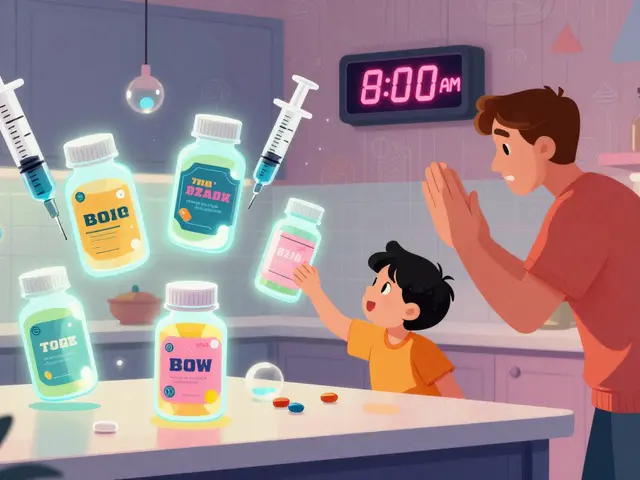Banaba: what it does, how to take it, and safety tips
People have used banaba leaf for centuries in Southeast Asia to help manage blood sugar. Today you’ll find banaba supplements sold for glucose support, weight control, and general metabolic health. Some call it a "natural" option for blood sugar — it’s not a replacement for medicine, but it can help when used carefully.
What banaba is and how it works
Banaba is the common name for Lagerstroemia speciosa. The active compound most talked about is corosolic acid. Lab and small clinical studies show corosolic acid may improve how cells take up glucose and help reduce spikes after meals. That’s why people with prediabetes or type 2 diabetes often try it as a supplement alongside diet and exercise.
The evidence is mixed but promising: some trials report modest drops in fasting and post-meal blood sugar, while others show smaller effects. Think of banaba as a helpful tool, not a cure. If you’re using it, watch your numbers so you know if it’s making a difference.
How to use banaba safely
Forms: banaba comes as dried leaf tea, standardized extracts, and capsules. Extracts are the most common for consistent dosing. Many products list corosolic acid or "banaba extract" on the label—choose those for predictability.
Dosing: supplement labels vary. Common patterns are 500 mg capsules taken once or twice daily or extracts standardized to corosolic acid taken in small doses with meals. Start low, for example one capsule a day, and track how you feel and what your blood sugar does. Always follow the product label and talk with your healthcare provider before starting.
Safety and interactions: the main risk is hypoglycemia when banaba is combined with diabetes drugs (metformin, insulin, sulfonylureas, etc.). If you use those medicines, do not start banaba without a doctor’s OK and closer blood sugar monitoring. Side effects are usually mild—stomach upset or nausea—but allergic reactions can occur. Avoid banaba if you’re pregnant or breastfeeding; there isn’t enough safety data.
Buying tips: pick brands that list standardized extract and corosolic acid content. Look for third-party testing, clear ingredient lists, and a visible batch number or certificate of analysis. Avoid products that promise dramatic cures or show unrealistic claims.
Practical quick rules: 1) Treat banaba as a supplement, not a medicine. 2) Start small and monitor blood sugar. 3) Tell your doctor, especially if you’re on glucose-lowering drugs. 4) Buy standardized extracts from reputable brands.
Want to try banaba? Ask your provider what dose is safe for you and how to adjust any current meds. If you track results—blood sugar, energy, weight—you’ll know if it’s worth keeping in your routine.
Discover the Amazing Health Benefits of Banaba: The Ultimate Dietary Supplement for Weight Loss and More!
In my latest blog, I explored the extraordinary health benefits of Banaba, a plant that's gaining recognition as an ultimate dietary supplement for weight loss and more. Aside from aiding in weight loss, Banaba offers a multitude of health benefits including blood sugar regulation, maintaining healthy kidney function, and providing antioxidant properties. Its active ingredient, corosolic acid, has been found to have significant anti-diabetic effects. It's fascinating to learn how this humble plant can offer such profound health benefits. Consider adding Banaba to your diet, it could be a game-changer for your health journey.
Latest Posts
-

How to Appeal Insurance Denials for Generic Medications: A Step-by-Step Guide
-

When to Report Rare Side Effects from Generic Medications
-

Top Lasix Alternatives for Managing Edema and Hypertension
-

Common Medication Errors at Home and How to Prevent Them
-

Can atenolol cause or worsen depression? What you need to know

15